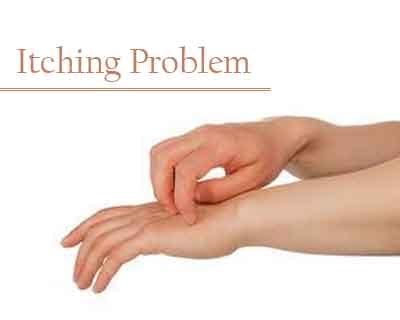- Home
- Editorial
- News
- Practice Guidelines
- Anesthesiology Guidelines
- Cancer Guidelines
- Cardiac Sciences Guidelines
- Critical Care Guidelines
- Dentistry Guidelines
- Dermatology Guidelines
- Diabetes and Endo Guidelines
- Diagnostics Guidelines
- ENT Guidelines
- Featured Practice Guidelines
- Gastroenterology Guidelines
- Geriatrics Guidelines
- Medicine Guidelines
- Nephrology Guidelines
- Neurosciences Guidelines
- Obs and Gynae Guidelines
- Ophthalmology Guidelines
- Orthopaedics Guidelines
- Paediatrics Guidelines
- Psychiatry Guidelines
- Pulmonology Guidelines
- Radiology Guidelines
- Surgery Guidelines
- Urology Guidelines
Serlopitant, a safe and effective drug for Chronic pruritus : Study

Chronic pruritus, one of the main symptoms in dermatology, is often intractable and has a high impact on patient's quality of life.The substance P/neurokinin 1 receptor pathway is critical in chronic pruritus and anecdotal evidence suggests that antagonism of this pathway can reduce chronic itch. Chronic pruritus, which is defined as itch persistence of itch for more than 6 weeks, is common and may involve the entire skin (generalized pruritus) or only particular areas, such as the scalp, upper back, arms, or groin (localized pruritus).
Gil Yosipovitch, M.D., from the University of Miami, and colleagues conducted a study to assess the safety and efficacy of the substance P/neurokinin 1 receptor antagonist serlopitant in treating chronic pruritus.
The researchers found that Serlopitant treatment resulted in a dose-dependent decrease in pruritus. The mean percentage decreases from baseline visual analog scale pruritus scores were statistically significantly larger with the 1- and 5-mg doses of serlopitant (P = .022 and P = .013, respectively) than with placebo at week 6. No significant safety or tolerability differences were detected among the groups.
Eligible patients with severe chronic pruritus who were refractory to antihistamines or topical steroids were randomized to serlopitant, 0.25, 1, or 5 mg, or to placebo, administered once daily for 6 weeks as monotherapy or with midpotency steroids and emollients. The primary efficacy end point was percentage change in visual analog scale pruritus score from baseline.
The study concluded that Serlopitant, 1 mg and 5 mg daily, was associated with a statistically significant reduction in chronic pruritus and was well tolerated.
The study has been published in Journal of American Academy of Dermatology

Disclaimer: This site is primarily intended for healthcare professionals. Any content/information on this website does not replace the advice of medical and/or health professionals and should not be construed as medical/diagnostic advice/endorsement or prescription. Use of this site is subject to our terms of use, privacy policy, advertisement policy. © 2020 Minerva Medical Treatment Pvt Ltd